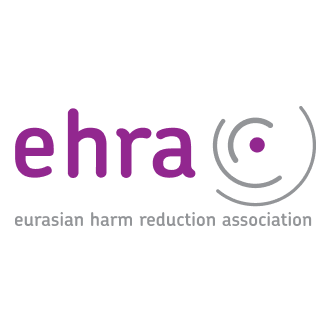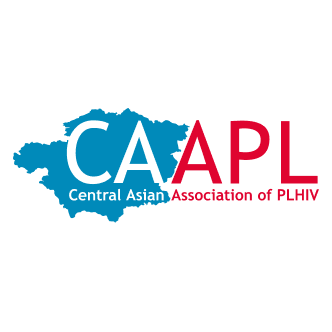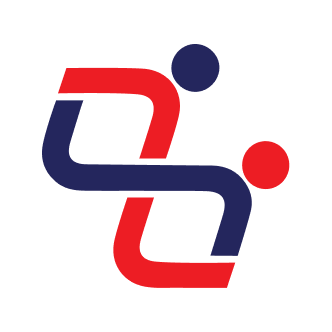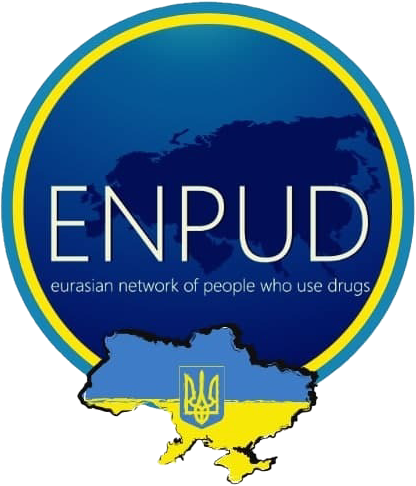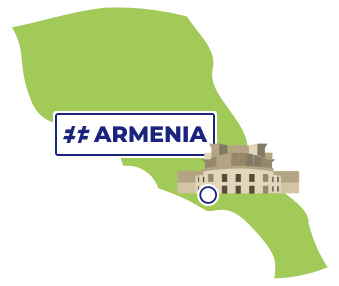
Armenia
01. HIV care cascade
ACTIVITIES
Decentralization of HIV testing services through integration to primary healthcare
Progress to date
Synthesis Report on assessment of readiness of health systems to decentralize HIV testing services in 5 countries of the EECA region is developed and can be found at the link.
The road maps were finalized in Armenia, Georgia, Moldova, Kazakhstan, and Kyrgyzstan.
Amendments related to HIV testing in Kazakhstan and Georgia were approved at the end of 2023. This, with close collaboration with local and international consultants, enabled in 2024 to focus on implementing normative acts through various measures, such as training sessions, advocacy campaigns, and strengthening cooperation among local CSOs and stakeholders into practice.
Local CSOs/community-based organizations, already involved in HIV testing, will play a key role in the decentralization of HIV treatment, further strengthening access to care at the community level.
1. Georgia
Georgia has completed the process of developing and approving regulations for decentralizing HIV testing and treatment. The HIV strategy for 2023–2025 was approved, and amendments to the national HIV/AIDS program have been made, including the creation of new testing and outpatient treatment points in new regions (Telavi, Akhaltsikhe, Poti, Khashuri). Measures for centralized supply of HIV tests have also been introduced. These changes came into force in January 2024.
Amendments approved by the Government of Georgia, on December 30, 2024. Annex 7 of the program regulates HIV services and indicates that decentralized testing with 2 different test kits will be implemented as a pilot together with sub contractor organizations and NGOs working with high risk groups in 8 cities of country – Tbilisi, Telavi, Khashuri, Akhsltsike, Kutaisi, Zugdidi, Poti and Batumi.
2. Kazakhstan
In Kazakhstan, in 3 cities: Almaty, Pavlodar and Ustkamenogorsk HIV testing is available through CSO, community based organizations: “You are not alone”, “Answer” and “Kemel Arma Foundation”. The document was registered in the Ministry of Justice of the Republic of Kazakhstan on December 4, 2023 № 33715. The adopted and entered into force document approving tariffs for HIV servies. In addition, the Roadmap to prevent HIV infection in the Republic of Kazakhstan for 2023-2026 was approved by Order of the Ministry of Health No. 155 dated March 16, 2023.
Technical support in optimization of medicine procurement cycles
Progress to date
Priorities for improvements of PSM systems in Armenia, Georgia and Kazakhstan were discussed and agreed for further activities in 2023-2024. In Kazakhstan, MOH provided a list of its activities aimed to preserve state registration procedure and expressed the need to develop relevant legislation. In Georgia, access to the Global Fund procurement mechanism is of the highest priority. In Armenia, long-term agreements for ARVs and streamlining procurement practices from bottom to the top level in terms of centralization/decentralization and improvement of medicines registration procedure are of importance.
Georgia developed legally binding draft Drug Agency letter with supporting technical analysis allowing to significantly simplify receiving waivers for medicines import for Georgia.
Kazakhstan developed draft MoH order to mitigate some risks for medicines tendering procedures for Kazakhstan.
Armenia developed draft Law and draft Governmental decree enabling launching a medicines reimbursement reform for Armenia.
In Kazakhstan, comprehensive justification documents were prepared to demonstrate the benefits and necessity of transferring procurement responsibilities to the Sole Distributor. The legal rationale was presented to a wide range of stakeholders at the working meeting “On expanding access to essential medicines for people living with HIV by amending the legal acts regulating the procurement of medicines” held in Q4 2024.
In Kyrgyzstan, an advocacy strategy was developed based on an analysis of the procurement of ARV tests, HIV diagnostic and treatment monitoring products procured with public funds and humanitarian supplies funded by the Global Fund (GF) and UNDP. Official letters were also sent to the State Enterprise “Kyrgyzpharmacy” and the GF, UNDP outlining potential measures to optimize procurement processes and reduce the cost of ARVs and diagnostic tests. In addition, a number of informal discussions were held with the Kyrgyzpharmacy SE, the Republican Center for HIV/AIDS Control and GF/UNDP on further optimization of procurement strategies, expansion of the range of ARVs and diagnostic tests procured with public funds, and the possibility of reducing the cost of certain ARVs and diagnostic tools. A meeting was also held with experts engaged by the GF and the GF/UNDP to prepare for the transfer of GF grant management to national agencies.
In Moldova, to identify potential obstacles and opportunities for the introduction of a procurement mechanism through international procurement agencies, a comprehensive review of the current legislation on procurement of medical devices and medicines was conducted. An assessment of the current clinical protocol was conducted to develop recommendations for the inclusion of ART drug resistance monitoring. These recommendations were presented to the CCM HIV Working Group, and efforts are ongoing to advocate for their inclusion in the 2025 revision of the National HIV Protocol.
ECAT meeting was held on December 4–6 in Tbilisi, Georgia.
Reports on procurement monitoring of CD4 and VL tests as well as the rapid tests for HIV implemented in 2023 are published.
Armenia
The draft legal framework for the national supply chain system in Armenia (available at the link https://www.e-draft.am/en/projects/7783), according to Samvel Kharazyan, Head of State Health Agency of the Ministry of Health Armenia, was successfully approved by the relevant authorities within the ordinary national bureaucracy regulations. This includes the adoption of necessary regulations needed to launch a reform starting from April 1, 2025.
Georgia
The legal framework for the national supply chain system in Georgia has been reviewed and the document with relevant suggestions has been submitted to the MOH of Georgia for approval.
Kazakhstan
Kazakhstan has made significant progress in improving the legal framework for the national supply chain system, having drafted and submitted suggestions to the MOH for approval. Additionally, changes to our relevant Order No. 110 have been published for public discussion in Kazakhstan.
Inclusion of PrEP into nationally approved service packages for MSM and/or other key populations
Progress to date
ECOM in partnership with WHO regional office for Europe analyzed five national PrEP protocols (Armenia, Kazakhstan, Kyrgyzstan, Georgia and Ukraine) and provided Report with recommendations on the steps needed to include PrEP into nationally approved standard package of servises. The report is under design and will be published by the end of February.
Much work was done in 2023 to present recommendations based on analyzes of PrEP Protocols in 5 countries. Online and offline meetings with stakeholders, monitoring visits (Kazakhstan, Kyrgyzstan) were held, the results were presented at various meetings, conferences, and technical consultations. Based on the analysis of PrEP Protocols and updated WHO recommendations, policy briefs were developed and sent to countries, the purpose of which was to show and not miss the importance of new interventions that can improve PrEP services in countries.
PrEP is available and integrated into the healthcare system as part of the standard service package funded by the government in 5 countries: Armenia, Georgia, Kazakhstan, Kyrgyzstan, and Ukraine.
1. Armenia
PrEP is available as part of the national HIV prevention program and partly funded by the governmentand. PrEP has been officially included in the national HIV prevention guidelines approved by the Ministry of Health of Armenia.
2. Georgia
PrEP is available as part of the national HIV prevention program and partly funded by the governmentand.
3. Kazakhstan
PrEP is available as part of the national HIV prevention program and fully funded by the governmentand.
4. Kyrgyzstan
PrEP is included in the healthcare system and fully funded by the governmentandand.
5. Ukraine
PrEP is available and included in national clinical protocols.
Continued state support is confirmed to ensure the availability of PrEP for key populations.
Measures have been taken to strengthen the position of PrEP within healthcare.
Community groups conduct community-led assessment of national quality standards in accordance to IDUIT and organize dialogue with service providers and MOH/local authorities
Progress to date
Moldova
PULS Communitar conducted CLM study to evaluate OAT programs in the Republic of Moldova, identify the level of the availability and acceptability of programs, outline achievements, and identify and evaluate difficulties faced by the program participants. Report with findings and conclusions was prepared and presented on the meeting with service providers and decision makers. Next steps and recommendations for CCM were elaborated.
GENDERDOC-M conducted a CLM study to identify the barriers in access to PrEP among MSM/TG. The results were presented to the Key Affected Populations (KAP) committee. After the presentation, it was strongly recommended to showcase these results at the National Dialogue event. The aim is to leverage the platform to advocate for a comprehensive revision of the National Clinical Protocol on Pre-Exposure Prophylaxis (PrEP) in the first quarter of 2024. This strategic move aligns with the commitment to fostering meaningful changes in the national approach to PrEP in response to the insights gained through the CLM survey.
Kazakhstan
Forum of PWUD conducted a study on the impact of the absence of take-home OAT on the life of patients and adherence to treatment. Report in Russian is prepared. Meeting with CCM is planned to be organized in January 2024.
Georgia
Rubikoni conducted a study on the impact of the absence of take-home OAT on the life of patients and adherence to treatment. Furthermore, the meeting with service providers and decision makers was organized, where results of the CLM were presented and discussed recommendations and next steps.
Kyrgyzstan
Equal to equal conducted a study on the client satisfaction with OAT. Report in Russian was prepared. Moreover, the meeting with service providers and decision makers was organized, where results of the CLM were presented and discussed recommendations and next steps.
Tajikistan
Intighob (Initiative group based on SPIN PLUS) conducted a study of the impact of the absence of take-home OAT on the life of patients and adherence to treatment. Report in Russian language was prepared. Moreover, the meetings with service providers and decision makers was organized, where results of the CLM were presented and discussed recommendations and next steps.
Armenia
“New Generation” conducted Community Based Assessment of HIV Services Provided to MSM Living With HIV In Armenia through a focus group with broad number of experts and MSM community members (including representatives from CCM). The results were included to “Funding Priorities of Civil Society and Communities Most Affected by HIV, Tuberculosis and Malaria” by Global Fund under the number 9 (The funding priorities and minutes from CRG group meeting attached). These priorities are in active use to prepare an application for the Global Fund grant in Armenia. In addition, results are in active use in the National dialogue now.
Integration of community-led monitoring (CLM) into the health care systems of countries in the EECA region to assure the quality of services for key populations (KPs)
Progress to date
Practical handbook on community-led monitoring tools was developed in English and Russian languages. The checklist with EHRA and other partners for CLM was discussed and agreed upon.
On 2-8 December 2022, specialists from the Eurasian Harm Reduction Association (EHRA) conducted regional online training “Community-Led Monitoring Methods” for the representatives of community organizations in the CEECA region. The training was attended by 38 representatives of organizations from different vulnerable communities in the CEECA region. The aim of the training consisting of three online sessions was to train leaders of self-organizations from different key communities in the CEECA region to understand, which role CLM can play in their advocacy work, how to formulate the proper problem and research question for CLM, and which of the different methodologies can most effectively provide the data needed for advocacy. Video recordings of the training, as well as presentations can be found at the link.
Following the CLM Handbook, developed in 2022, integration of CLM into the healthcare system can be ensured through productive and sustainable participation of community representatives in the decision-making process, mainly within CCM, and through national consultations with CCM and other health sector coordination bodies on key needs for CLM and its findings and recommendations on improving of health services.
CLM has been conducted in all planned countries. Results were presented in 5 countries and protocols were received (Moldova, Georgia, Tajikistan, Kazakhstan and Kyrgyzstan). In Armenia, the results of the CLM are in active use in the National dialogue now. The focus group with broad number of experts and MSM community members (including representatives from CCM) was conducted, and based on the results PrEP was identified as a key priority and included to “Funding Priorities of Civil Society and Communities Most Affected by HIV, Tuberculosis and Malaria” by Global Fund under the number 9 (The funding priorities and minutes from CRG group meeting attached). These priorities are in active use to prepare an application for the Global Fund grant in Armenia.
Following CLM Handbook, developed in 2022, integration of CLM into healthcare system can be ensured through productive and sustainable participation of community representatives in decision-making process, mainly within CCM, and through national consultations with CCM and other health sector coordination bodies on key needs for CLM and its findings and recommendations on improving of health services. Within EHRA activities, CLM results in all countries in Georgia, Moldova, Kyrgyzstan, Kazakhstan and Tajikistan were presented and reviewed in CCMs and/or in other healthcare managing bodies. Protocol/minutes of the CCM meeting or other health authority body, based on the conducted national consultations with CCM and other health sector coordination bodies on key needs for CLM and discussed how results of CLM will help to improve services and integration of them into the healthcare system. What is more, additionally to presentation of CLM results, this year consultants in Georgia, Moldova, Kyrgyzstan and Kazakhstan prepared requests to healthcare managing bodies by asking provide information on how CLM results were being implemented. EHRA prepared a final publication – report, which draws on the three-year SoS 2.0. project of the EHRA to support community-led monitoring (CLM) initiatives for opioid agonist therapy (OAT) and the findings and results of community groups in Georgia, Moldova, Kazakhstan, Kyrgyzstan, and Tajikistan, offering insights into best practices and lessons learnt.
Moldova
PULS Communitar conducted CLM study to evaluate OAT programs in the Republic of Moldova, identify the level of the availability and acceptability of programs, outline achievements, and identify and evaluate difficulties faced by the program participants. Report with findings and conclusions was prepared and presented on the meeting with service providers and decision makers.
GENDERDOC-M conducted a CLM study to identify the barriers in access to PrEP among MSM/TG. The results were presented to the Key Affected Populations (KAP) committee. After the presentation, it was strongly recommended to showcase these results at the National Dialogue event. Following dialogues and agreements with the Protocol revision experts, the recommendations were formally presented on August 23, 2024, during the Round Table on the National Clinical Protocol on PrEP. The updated draft protocol, which includes the proposed recommendations, is currently under review by government authorities. In addition, the approval of new service standards, which will also include CLM, is expected in June 2025.
Kazakhstan
Forum of PWUD conducted a study on the impact of the absence of take-home OAT on the life of patients and adherence to treatment. Report in Russian is prepared.
Georgia
Rubikoni conducted a study on the impact of the absence of take-home OAT on the life of patients and adherence to treatment. Furthermore, the meeting with service providers and decision makers was organized, where results of the CLM were presented and discussed recommendations and next steps. In addition, based on ECOM recommendations, the working group developed CLM mechanisms and a special chapter was included in the Standards for Management of Public Health Interventions (PrEP Protocol). The working group included representatives from the National Centre for Disease Control and Public Health (NCDC), the Research Centre for Infectious Diseases, AIDS and Clinical Immunology, NGOs and MSM representatives, including members of the András team. Letter received from NCDC in support of the modified protocol.
Kyrgyzstan
Equal to equal conducted a study on the client satisfaction with OAT. Report in Russian was prepared. Moreover, the meeting with service providers and decision makers was organized, where results of the CLM were presented and discussed recommendations and next steps.
Tajikistan
Intighob (Initiative group based on SPIN PLUS) conducted a study of the impact of the absence of take-home OAT on the life of patients and adherence to treatment. Report in Russian language was prepared. Moreover, the meetings with service providers and decision makers was organized, where results of the CLM were presented and discussed recommendations and next steps.
Armenia
“New Generation” conducted Community Based Assessment of HIV Services Provided to MSM Living With HIV In Armenia through a focus group with broad number of experts and MSM community members (including representatives from CCM). The results were included to “Funding Priorities of Civil Society and Communities Most Affected by HIV, Tuberculosis and Malaria” by Global Fund under the number 9 (The funding priorities and minutes from CRG group meeting attached). The National Guidelines on PrEP for HIV infection have been officially approved under Order No. 6241-L by the Minister of Health, dated 13 November 2024. These guidelines are now available on the Ministry of Health’s official website.
Provision of HIV prevention services with precautions against COVID-19
Progress to date
Work on shelters has expanded – in addition to 5 shelters for working with women who use drugs in conditions of violence (Ukraine, Serbia, North Macedonia, Kazakhstan), support for flexible shelters for representatives of the LGBT community in Kazakhstan, Uzbekistan, Kyrgyzstan and Tajikistan has been added. The program was distinguished by a special programmatic approach to working with clients – about 3,200 clients received material assistance in the form of food packages (Georgia, Kazakhstan). PPE support in Kaz for migrants and KGP (124,000 disposable masks, 1,000 antiseptics); CLM to provide quality services for clients of OST programs in 7 countries.
Community-led advocacy of elimination of identified critical discrepancies with the WHO prevention, testing and treatment guidelines
Progress to date
Current testing and treatment protocols analysis is finished in 7 countries (Armenia, Moldova, Georgia, Kazakhstan, Kyrgyzstan, Uzbekistan, and Ukraine) and recommendations to align the national protocols with the WHO guidelines are provided. The report is available at the link.
WHO has held the analysis of HIV testing guidelines in 6 countries of EECA – Georgia, Kazakhstan, Kyrgyzstan, Moldova, Tajikistan, Uzbekistan. The report is available at the link.
National HIV testing and ART-optimized strategies based on and aligned with the WHO recommendations were developed for 4 EECA countries – Armenia, Kazakhstan, Kyrgyzstan, Moldova.
In Armenia, Kazakhstan, Kyrgyzstan, and Moldova, all key actions related to the development and implementation of HIV testing and ART optimization strategies, in line with WHO recommendations, have been completed. According to the results of the assessment in 2022, there was a need to replace Georgia with another country to implement activities for 2023 and 2024 since the Georgian testing and treatment protocol is generally in line with the 2021 WHO recommendations for the use of ARV drugs for the prevention and treatment of HIV, and as well as other aspects of the clinical management of HIV. During project meetings different optios were discussed, and the desicion was taken to continue the activities in Armenia instead of Georgia.
Armenia
- Approved – Order of the Ministry of Health of Armenia No. 6241-L dated 11/13/2024 on implementation of the clinical protocol “Pre-Exposure Prophylaxis of HIV Infection” in Armenia. The Order entered into force on November 13, 2024.
- Approved – Clinical protocol “Pre-Exposure Prophylaxis of HIV Infection”.
An official letter-response from the Ministry of Health of Armenia dated on November 26, 2024 confirms the approval of the PrEP protocol and contains the information on other legal acts that are developed and will be approved in 2025.
Decentralization of HIV treatment through integration to primary healthcare
Progress to date
Synthesis Report on assessment of health systems to decentralize HIV treatment services in 5 countries of the EECA is developed and can be found at the link.
The road maps were finalized in Armenia, Georgia, Moldova, Kazakhstan, and Kyrgyzstan.
Community-led advocacy of elimination of identified critical discrepancies with the WHO prevention, testing and treatment guidelines
Progress to date
Current testing and treatment protocols analysis is finished in 7 countries (Armenia, Moldova, Georgia, Kazakhstan, Kyrgyzstan, Uzbekistan, and Ukraine) and recommendations to align the national protocols with the WHO guidelines are provided. The report is available at the link.
WHO has held the analysis of HIV testing guidelines in 6 countries of EECA – Georgia, Kazakhstan, Kyrgyzstan, Moldova, Tajikistan, Uzbekistan. The report is available at the link.
National HIV testing and ART-optimized strategies based on and aligned with the WHO recommendations were developed for 4 EECA countries – Armenia, Kazakhstan, Kyrgyzstan, Moldova.
In Armenia, Kazakhstan, Kyrgyzstan, and Moldova, all key actions related to the development and implementation of HIV testing and ART optimization strategies, in line with WHO recommendations, have been completed. According to the results of the assessment in 2022, there was a need to replace Georgia with another country to implement activities for 2023 and 2024 since the Georgian testing and treatment protocol is generally in line with the 2021 WHO recommendations for the use of ARV drugs for the prevention and treatment of HIV, and as well as other aspects of the clinical management of HIV. During project meetings different optios were discussed, and the desicion was taken to continue the activities in Armenia instead of Georgia.
Armenia
- Approved – Order of the Ministry of Health of Armenia No. 6241-L dated 11/13/2024 on implementation of the clinical protocol “Pre-Exposure Prophylaxis of HIV Infection” in Armenia. The Order entered into force on November 13, 2024.
- Approved – Clinical protocol “Pre-Exposure Prophylaxis of HIV Infection”.
An official letter-response from the Ministry of Health of Armenia dated on November 26, 2024 confirms the approval of the PrEP protocol and contains the information on other legal acts that are developed and will be approved in 2025 is also attached.
02. Removing HR/gender barriers
ACTIVITIES
Through the use of the Stigma Index 2.0 , measure HIV-related stigma and discrimination experienced by PLHIV in countries of the EECA region by delivering training for interviewers and researchers to familiarize them with the methodology and survey instrument, and in conducting interviews and entering data into the RedСap database system, as well as to develop and disseminate the survey report
Progress to date
Protocols for Stigma Index Research are developed in Armenia and Georgia. The filed phase will start in 2023.
In all three countries the Protocols are approved. Moreover, the Stigma Index Researches are fully completed in Armenia and Georgia.
The reports has been approved by the Global Partnership and presented to all stakeholders. In Kazakhstan, the protocol is approved and the field stage of the research is successfully completed with a final sample of over 1430 surveyed respondents. Currently, within the project, the Research Team has commenced the analysis of the collected data and is preparing the initial draft of the Research Report.
Stigma Index Researches are fully completed in Armenia, Georgia and in Kazakhstan.
Developing and launching call for “Gender and HIV” small grants with special eligibility focus on Monitoring situation with human rights of Trans* people
Progress to date
Small Grants Programme with 4 selected projects run by grass-root NGOs in 2022 included:
- “National Trans Coalition” NGO with the project titled “HIV prevention in Armenia through gender mainstreaming” (Armenia);
- “The Public Association “Union for Equity and Health” NGO with the project titled “Gender Equality for sex workers” (Moldova);
- “Rromnjako Ilo” Zrenjanin he Public Association” NGO with the project titled “Check your health – Equality for Trans Roma and Roma women/girls sex workers” (Serbia);
- “NON-GOVERNMENTAL ORGANIZATION «NASHA DOPOMOGA»” with the project titled “RIGHT TO HEALTH!” (Ukraine).
- The project applicant is the organization “Albanian Association of People Living with HIV/AIDS (PLWHA)” with the project titled “New approach on transforming the spiral of exclusion and marginalization, towards the right of recognition before the law, gender-diverse and reduce the violence in health-care settings for trans persons in Albania”.
- The project applicant is the “National Trans Coalition” NGO with the project titled “Strategic pathway to remove structural barriers for trans* communities to PrEP and PEP services in Armenia”. The proposed project has been designed to establish favorable conditions for improving access of Trans* communities to PrEP and PEP services in Armenia.
- The project applicant is the organization “STAR STAR” Skopje with the project titled “Community Mobilization to Mitigate Funding Cuts and Gender Inequality in National HIV Programs for Sex Workers in North Macedonia”. The project is envisioned as a response to the latest developments in North Macedonia related to provision and delivery of HIV prevention services for key populations.
- The project applicant is the organization “Rromnjako Ilo” Zrenjanin he Public Association” NGO with the project titled “Supporting health wellbeing and safety of Trans and Intersex Roma, sex workers and HIV+”.
In 2024, grants “Gender and HIV” were implemented in Albania, Georgia, Moldova and Ukraine.
Moldova
GENDERDOC-M, alongside a parent support group, aimed to create a safe and inclusive environment for transgender and gender-nonconforming youth. Two formal partnerships with youth clinics expanded access to health services and 24/7 hotline support. Parent education sessions led to increased understanding, school negotiations for name recognition, and medical referrals. As a result, a strategic plan for 2025 includes engaging health and education ministries to address systemic barriers.
Georgia
The Queer Association Temida established an informal network of trans-friendly professionals across three cities, despite restrictive anti-LGBT laws. The network held two meetings to discuss the legal landscape and continued service delivery. A memorandum with Psychea Mental Health Center helped maintain access to gender-affirming care. A peer educator training course was launched, and two trained educators provided online consultations to 32 beneficiaries, offering support on HIV and gender-affirming care.
Ukraine
The “Help Is Near” project by HPLGBT produced a comprehensive report on barriers and solutions in trans health services, especially for intersectional groups like sex workers and those using psychoactive substances. Recommendations for service decentralization were developed and are planned to be presented to the CCM in early 2025. HPLGBT aims to integrate these recommendations into national funding requests to the Global Fund, ensuring sustained support for marginalized trans communities.
REAct (https://react-aph.org/): Monitoring of human rights violations and discrimination against PLHIV and KPs. Responding to such cases through provision or referring to legal or social services to victims and through advocacy actions. In Georgia, Kyrgyzstan, Moldova and Tajikistan, REAct system was initiated within SoS_project#1.0 in 2020, and in 2022 is transferred to national funding, meanwhile APH continues to provide technical support to users. In Ukraine, REAct was implemented in 2019 and is functional within national GF grant. REAct system is supported by APH in Uzbekistan for 2022-2023, in 5 Balkan countries – for 2022-2024, and in Armenia and Azerbaijan – for 2023-2024. At the same time, regional networks ECOM and ENPUD started to use REAct program for documentation in several countries of the region and are supported for 2022-2024 within SoS_project#2.0 grant.
Progress to date
Cumulatively, during 2022 there were registered 6700+ cases in 13 countries (Albania, Armenia, Bosnia and Herzegovina, Georgia, North Macedonia, Moldova, Montenegro, Kazakhstan, Kyrgyzstan, Tajikistan, Serbia, Ukraine, Uzbekistan) involving 170+ CBOs, as well as regional networks such as ECOM (in Uzbekistan, Tajikistan, Armenia, Kazakhstan, Kyrgyzstan) and ENPUD (Georgia, Moldova, Ukraine, Kyrgyzstan, Kazakhstan, Tajikistan, Belarus).
The following publications are available:
- Statistic country reports by APH on human rights violations based on REAct data collected in 2021 in Kyrgyzstan, in Georgia, in Moldova, in Tajikistan.
- Protectors or Perpetrators: the impact of unlawful policing on human rights and HIV. Join analytical publication in partnership with Frontline AIDS, Alliance for Public Health (Ukraine, Kyrgyzstan, Tajikistan, Moldova, Georgia, Uzbekistan), AIDS Foundation (South Africa), Gender Dynamix.
- Report on the results of the analysis of the Hotline calls by APH: Domestic and other forms of violence against women living with HIV and women in key populations during the COVID-19 pandemic in Tajikistan.
- REAct Statistical Report for the 1st half of 2022 by APH. Violations of the rights of people living with HIV and representatives of vulnerable groups in Georgia.
Situational Report by APH: Drug policy in Georgia and Challenges. - Series of publications by APH based on REAct data within regional campaign “16 days against gender-based violence”.
REAct system is available and functional at the national level in the following counties. It enables documentation of cases of human rights violations: Albania (45 cases), Armenia (182), Azerbaijan (174), B&H (70), Montenegro (60), Kazakhstan (363), North Macedonia (42), Tajikistan (1155), Serbia (24), Uzbekistan (835). More detailed data of 2023 is available in REAct Regional Digest and REAct website.
Cumulatively in 10 countries, 49,9% of documented cases were responded by REActors, their organizations or through referral to partner NGOs or institutions. During 2023 in 10 countries, there were provided 2162 consultations about human rights, 1022 consultations with professional lawyers. In 168 cases REActors helped to draft simple legal documents, such as complains or statement to police, in 236 cases represented client’s interests in medical facilities, assisted in getting medical services and support, in 336 cases – accompanied the client in the initial appeal to the police. There were at least 20 strategic court cases, and at least 162 cases were used for shadow reports to UN Treaty Bodies.
Cumulatively in 8 countries (Armenia, Azerbaijan, Kazakhstan, Albania, Bosnia and Herzegovina, Montenegro, North Macedonia, Serbia) 56,2% of documented cases were responded by REActors, their organizations or through referral to partner NGOs or institutions (https://drive.google.com/drive/folders/1wtJaecXERatg8cmrAE1mzaoshtdLQY_w). Numerous success stories of cases resolutions are available at REAct website.
Legal environment and situation analysis as well as mapping of civil society partners in the area of access by migrants to HIV and TB services
Progress to date
“On December 9, the REGMH with the assistance of the NCC Secretariat held in Dushanbe a Roundtable “Protection of health of migrants from Tajikistan”. The event was timed to presentation of a new study conducted by the REGMH: “Situation and Economic analysis of HIV-related health services in the field of migration in Tajikistan”.
On December 13, 2022, the Regional Expert Group on Migration and Health together with Central Asian Association of People Living with HIV held a Roundtable in Almaty “Health of HIV positive migrants in Kazakhstan”. The aim of the Round Table was to promote effective and timely treatment of international migrants living with HIV. During the meeting, the Situational and Economic analysis on the provision of HIV-related health services for international migrants in Kazakhstan was presented and discussed.
On December 19, REG together with local NGO “Real World. Real People” held a Roundtable in Armenia, Yerevan aimed to buster a discussion and exchange of experience on the provision of services for international HIV-positive migrants between heads of health authorities of the Republic of Armenia, government departments responsible for migration and civil society organizations. At the meeting, a study “Analysis of legal and institutional barriers to accessing HIV services among migrants in the Republic of Armenia” (developed by REG in 2021) was presented.
Also, in Q4 REG has launched a study is Kyrgyzstan.
On October 11, REG held an online meeting “Migrants’ access to HIV services in Central Asia and Caucasus” that gathered representatives of UNAIDS, Central Asian Association of PLHIV (Kazakhstan), TB People (Georgia), NGO “Real World, Real People” (Armenia), IFRC Central Asia, WHO Europe, Elton John AIDS Foundation, NGO Equality Movement (Georgia), AFEW (Kyrgyzstan), IFRC South Caucasus, Global Fund, WHO, and MSF. The goal of the meeting was to initiate a discussion and work out possible solutions to provide access to HIV services for those who urgently left the countries following the political situation.”
Legal environment assessment on MSM and trans people in 4 countries
Progress to date
The goal of this comparative analysis of legislative barriers preventing LGBT people from fully realizing their rights in 12 CEECA countries is to show progress or, on the contrary, regression in terms of the development of legislation and law enforcement practice, enabling or preventing LGBT people from realizing their human rights.
An updated analysis of activities from the end of 2021 to the beginning of 2023 shows the main changes and provides a list of key advocacy recommendations on where the attention of national teams and international organizations is needed to improve the human rights situation in 12 countries of the region.
In 2024, ECOM conducted a legal Environment Assessment in 4 countries of EECA. This comparative country analysis aimed to identify legal barriers and issues in areas where the necessary legislation already exists, but does not fully ensure the implementation of rights and freedoms for gay men, other MSM and trans people.
All reports consist of these chapters:
- International obligations of the country and their implementation;
- Table: Compliance of Domestic legislation with international standards;
- Analysis of legal regulations related to SOGI and HIV and their application;
- Recommendations.
All reports were published on ECOM’s website.
- Legal Environment Assessment in Armenia;
- Legal Environment Assessment in Georgia;
- Legal Environment Assessment in Kazakhstan;
- Legal Environment Assessment in Moldova.
03. Budget advocacy
ACTIVITIES
Legal framework for financing HIV services from domestic funds – development and approval
Progress to date
Targeted activities were held in all project countries to discuss with national and international, governmental and non-governmental stakeholders the changes needed to enable sustainable and uninterrupted funding of HIV-related activities from national resources. Through targeted advocacy, technical support, and an integrated approach to HIV funding, in 2022 the project team managed to allocate approximately 1,7 million USD at the national level to programs for key populations, using social contracting mechanisms: Moldova – 154,126.84 USD; Kazakhstan – 118,529.33 USD; Kyrgyzstan – 61,000 USD; Tajikistan – 19,200.00 USD; Georgia – 357,000 USD; Ukraine – 931,453.96 USD.
Over three years of implementation of SoS_project 2.0 has contributed to significant changes in the financing of HIV services in 14 countries in SEE and EECA regions. The project supported the development of service delivery standards, pricing methodologies, and quality control procedures, which are critical for sustainable financing from the state budget.
The practice of social contracting is applied without interruption in 14 countries.
Increasing domestic financing of countries for services to key groups
Progress to date
Targeted activities were held in all project countries to discuss with national and international, governmental and non-governmental stakeholders the changes needed to enable sustainable and uninterrupted funding of HIV-related activities from national resources. Through targeted advocacy, technical support, and an integrated approach to HIV funding, in 2022 the project team managed to allocate approximately 1,7 million USD at the national level to programs for key populations, using social contracting mechanisms: Moldova – 154,126.84 USD; Kazakhstan – 118,529.33 USD; Kyrgyzstan – 61,000 USD; Tajikistan – 19,200.00 USD; Georgia – 357,000 USD; Ukraine – 931,453.96 USD.
Thanks to budget advocacy within the SoS project 2.0, the amount of money allocated from national budgets for HIV services through social contracting mechanisms in EECA project countries amounted to $3 269 959 in 2024. During SoS project 2.0 – $ 6 273 049 were allocated for social contracting in EECA region. The cumulative domestic budget expenditures for servicing key populations in 5 countries of SEE amounted to $1 061 383 in 2024. During SoS project 2.0 – $ 3 236 260 were allocated for social contracting in SEE region.
Regulation of service packages for key groups
Progress to date
In the reporting period, the Emergency package of services for key and vulnerable groups of the population in the field of HIV, and TB in the context of military conflicts was finalized, including tariffication. On its basis, in 2023, the process of advocacy and promotion of implementation at the level of countries in the EECA region will be launched.
Strategic Brief on Business Continuity (link) and Strategic Brief on Social contracting (link) were developed. In addition, Analysis of Quality of Services Provided in Azerbaijan was held and is available at the link.
Over three years of implementation of SoS_project 2.0 has contributed to significant changes in the financing of HIV services in 14 countries in SEE and EECA regions. The project supported the development of service delivery standards, pricing methodologies, and quality control procedures, which are critical for sustainable financing from the state budget.
The practice of social contracting is applied without interruption in 14 countries.


